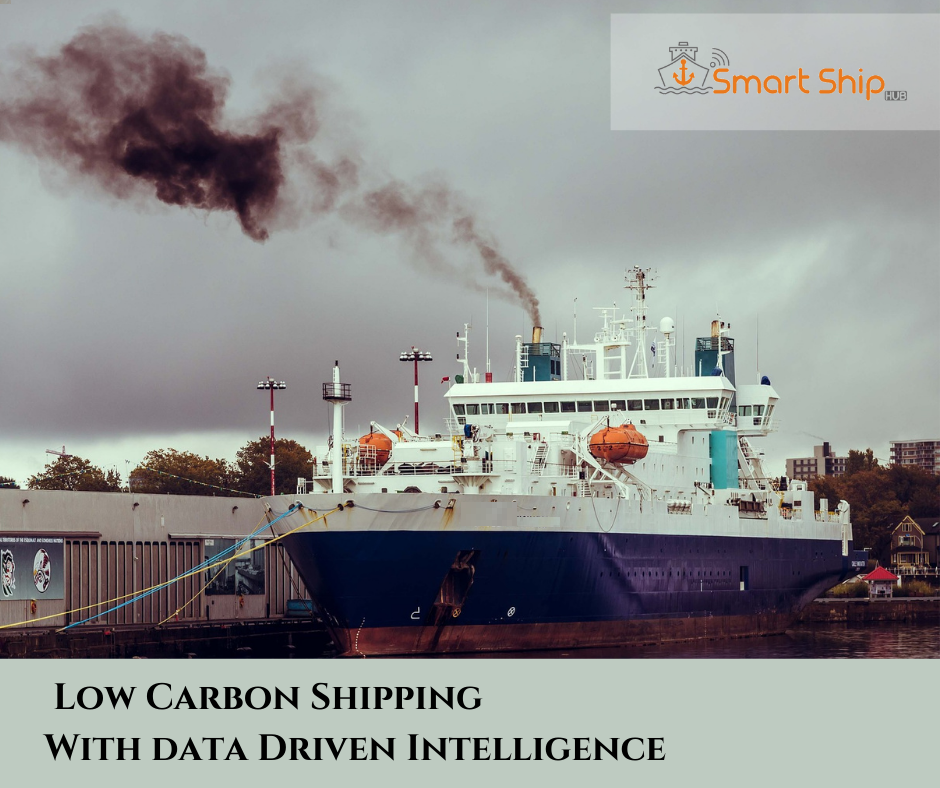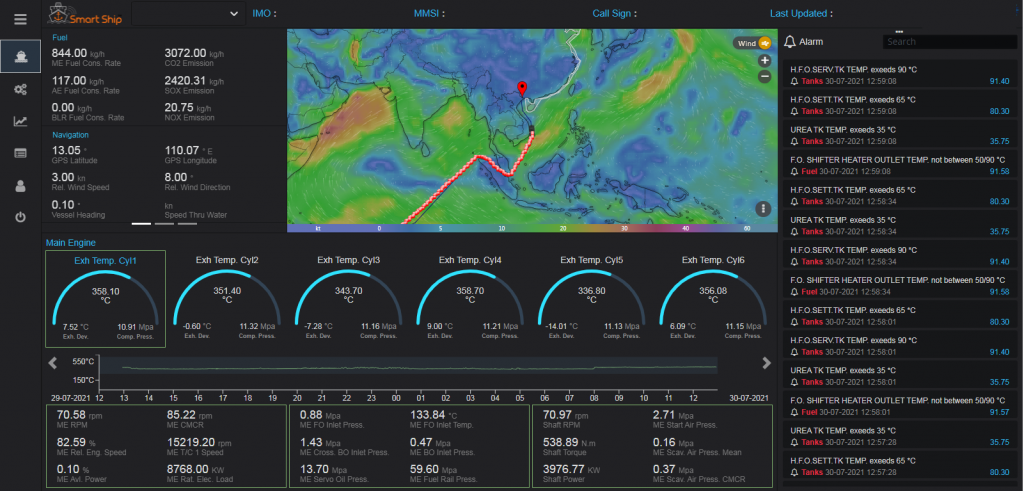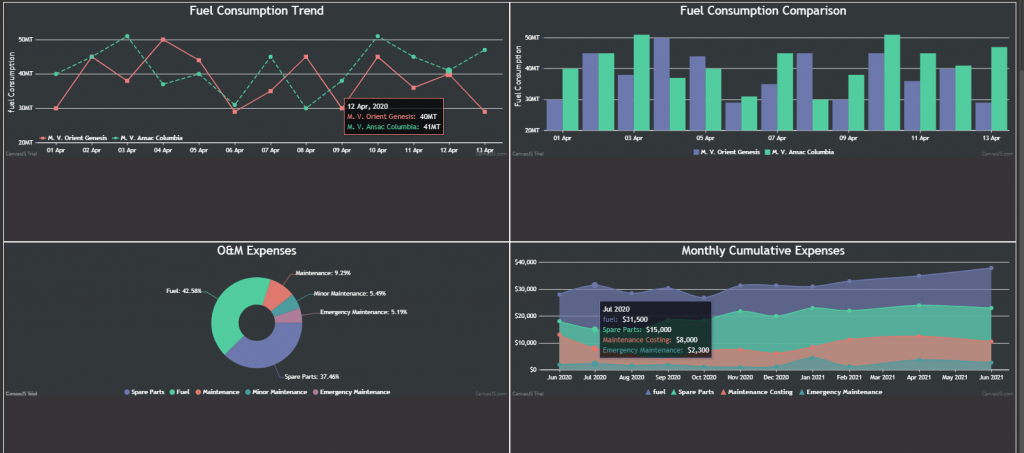
The global maritime sector is key for international trade (about 90% of the global trade occurs through maritime logistics) and hence vital to the world economy. Due to the enormous scale of this sector, maritime represents ~ 3% of the total global greenhouse gas (GHG) emissions. Therefore strict environmental regulations around NOx, SOx and CO2 emissions are set to cause major technological changes in the industry. Fuel consumption can be optimized by numerous efficiency improvement models using Smart Sensors, IIoT and AI technology dedicated to monitoring the performance of the vessels with real-time data. Real time vessel data, together with historical data and data from other onboard systems , processes help tackle numerous issues in order to achieve decarbonization objectives of the of the maritime industry.
The International Maritime Organization has announced its ambitions to halve international shipping GHG emissions by 2050 and reduce CO₂ emissions by at least 40% by 2030.
Yet, the pathway to a decarbonized future in the maritime industry is filled with multiple challenges and areas of concern to tackle.
Industry leaders have pointed to the various concerns for digitalization:
- Lack of regulatory incentives, such as tax cuts or carbon levies
- Lack of technological alignment between carriers, countries, ports and manufactures.
- Time & upfront costs to modernize vessels and infrastructure
- Time & upfront costs to improve infrastructure and available technologies
Smart Ship© Hub & IRS sees Machine Learning and Advanced Analytics as powerful technologies to decarbonize shipping in the near future. Current IoT and ai technologies can target an immediate area in the fight to mitigate climate change.
Here is a quick snapshot of 4 recommendations using Data & Machine Learning, from our client use cases .
Optimizing voyage routes

Global shipping routes have huge potential for improving operational efficiency. An estimation states that a 10% CO₂ reduction can be achieved by optimizing arrival times like airlines.
Historic data on shipping routes, timetables and delays are often available to shipping companies and with calculated ETA from live data of vessels, machine learning algorithms for route planning have matured with the use of technology. Utilizing this data in order to spot disorganizations of their networks and to automatically suggest improved routes on-demand can be a swift way for many shipping operators to reduce their emissions.
Fleet modernization
Merchant vessels take years to build, need a lot of investment and have decades-long lifespans. The risk of having old technology on ships in a couple of years is inevitable. With heavy investment already done in acquiring new vessels couple of years ago, it becomes practically impossible to get new tech on the ship and pull it out of operations. Smart Ship Hub’s digital platform encompasses a complete suite of offering with the most progressive and non invasive solution while maintaining minimalistic approach. With the use of smart sensors, interface units, IIoT platform, data tapping from legacy and new built machinery helps create customized data models to increase efficiencies and reduce operational cost. A data-driven method can help shore offices as well as fleet crew manage complex challenges with actionable insights from live machinery data. Data-driven intelligence can help in establishing compliances, set up smart alerts and notifications , trends and probability w.r.t exhaust and emission use case
Predict & Optimize Consumption

Predict & Manage Emissions
In order to achieve the goal of controlling GHG emissions, deeper knowledge of machinery performance pattern w.r.t fuel consumption is important. Live data on machinery performance, correlated with multiple others parameters from the machinery ecosystem helps in accurately assessing the condition & health of the vessel. Before the start of the voyage, owners and operators are now setting KPI’s and target certain benchmark w.r.t emission, consumption, while ensuring optimum machinery performance : thanks to digital technology.
Machine Learning Impact Can Be Realized Within Weeks
Although the timeline set by IMO to reduce their carbon footprint appears to be distant , the time to act is now and start creating an ecosystem to go all gears in the future. Fortunately, sensing technology together with data streams fed into ML algorithms go multiple steps ahead to provide intelligence, trends, patterns and very specific indication on “ expected actions to be taken”. In most vessels Smart Ship Hub is working on, the data driven value can be observed within first 4 to 6 weeks while not requiring heavy investments or making any physical change onboard.
Smart Ship© Hub is a maritime digital platform catering to Ship Owners, Operators, Charter Party , Insurers , Ship Supplies, Ports in achieving their digitalization objectives . Leveraging Smart sensors, Artificial Intelligence, Machine Learning and Cloud Data Engineering, Smart Ship Hub’s mission is to drive efficiencies, optimization, operational safety, transparency and compliance through continued technology research.
Smart Ship© Hub Pte. Ltd.
75 Meyer Road, #13-03 Hawaii Tower, Singapore
Singapore: +65 9894 6598 | India : +91 9607009295
Email: contact@smartshiphub.com
Singapore | India